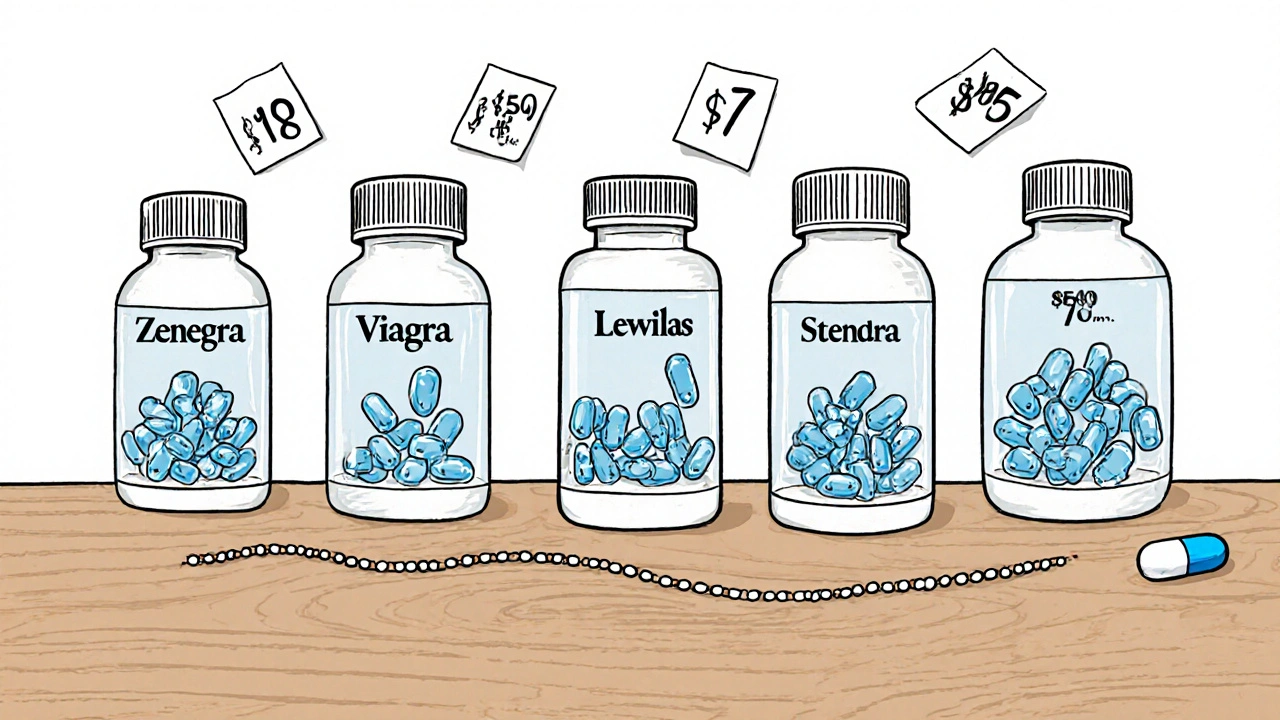Viagra: What It Is, How It Works, and What You Need to Know
When you hear Viagra, a brand-name medication containing sildenafil, used primarily to treat erectile dysfunction by increasing blood flow to the penis. Also known as sildenafil, it’s one of the most studied drugs for sexual health in the last 25 years. It doesn’t create desire—it helps your body respond when you’re aroused. That’s it. No magic. No instant results. Just science that works for millions.
Viagra is part of a larger group called PDE5 inhibitors. These drugs relax muscles in the penis, letting more blood flow in and stay there longer. But it doesn’t work if you’re not sexually stimulated. And it won’t fix low libido, anxiety, or relationship issues. Those need different tools. What it does well is help with the physical side of getting and keeping an erection. Many people use it safely. But it’s not for everyone. If you take nitrates for chest pain, mixing them with Viagra can drop your blood pressure to dangerous levels. That’s why doctors ask about your heart health before prescribing it. It’s not just about sex—it’s about safety.
People often confuse Viagra with other ED meds like Cialis or Levitra. They’re similar but not the same. Viagra kicks in about 30 to 60 minutes after you take it. Food, especially fatty meals, can slow it down. Cialis lasts longer—up to 36 hours. Viagra’s effects fade after 4 to 5 hours. Cost matters too. Generic sildenafil is often cheaper than the brand name. And while you can find it online, buying from unverified pharmacies risks counterfeit pills with wrong doses or dangerous additives. Stick to trusted sources.
It’s also worth noting that erectile dysfunction isn’t always just about sex. It can be an early warning sign of heart disease, diabetes, or high blood pressure. If you’re having trouble getting an erection, your body might be telling you something else is off. That’s why some doctors see ED as a red flag for overall vascular health. Treating the symptom with Viagra doesn’t fix the root cause—but it can buy you time to get checked out.
Side effects? Common ones include headaches, flushing, upset stomach, and stuffy nose. Rare but serious risks include sudden vision or hearing loss. If that happens, stop taking it and get help right away. Most people tolerate it fine. But if you’re on other meds—like alpha-blockers for prostate issues or certain antidepressants—you need to talk to your doctor first. Interactions happen, and they can be risky.
There’s a lot of noise around Viagra. Ads make it seem like it’s the only solution. But real health isn’t about quick fixes. It’s about understanding what’s going on in your body and making smart choices. Whether you’re considering it for the first time or have been using it for years, knowing how it works, what limits it, and what alternatives exist makes all the difference.
Below, you’ll find real, no-fluff guides on how Viagra fits into broader health conversations—from drug interactions and cost comparisons to how stress and heart conditions play a role. No marketing. Just clear facts to help you make better decisions.
Compare Zenegra (Sildenafil) with Other ED Medications: What Works Best?
Compare Zenegra (sildenafil) with Viagra, Cialis, Levitra, and Stendra to find the best ED medication for your needs. Learn about cost, duration, side effects, and real-world effectiveness.
read more

